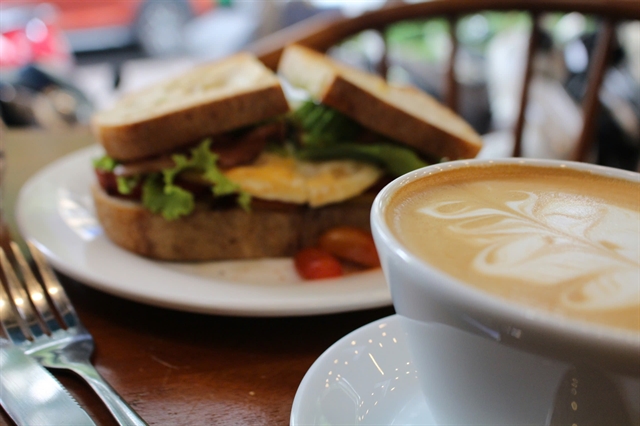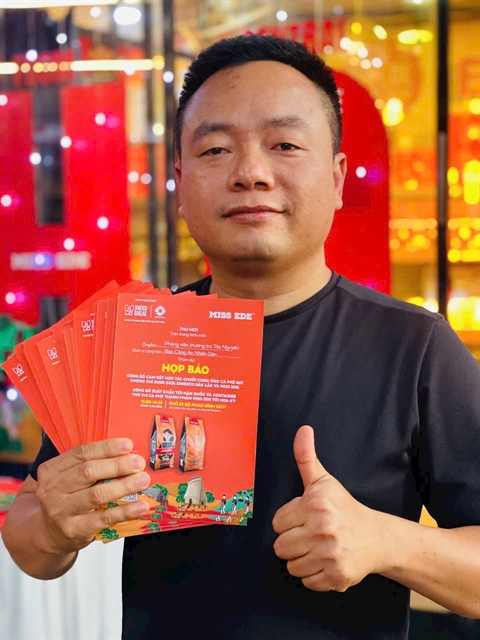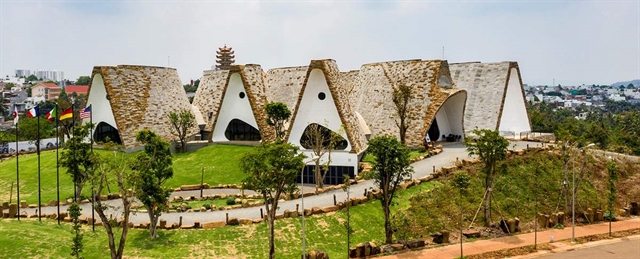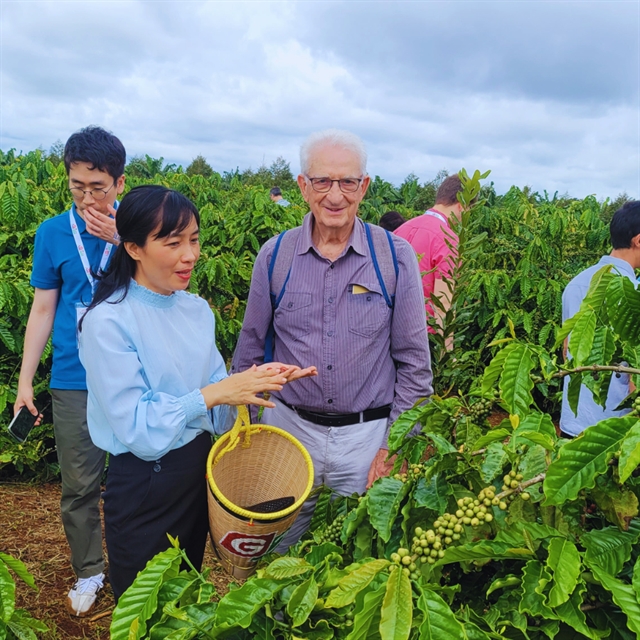 Life & Style
Life & Style

 |
| Hoàng Danh Hữu, founder and CEO of MISS EDE Company in Đắk Lắk Province. VNS Photo Văn Châu |
Đắk Lắk Province has been working with tourism businesses and coffee farmers to create coffee tourism products. Through this, visitors get to take photos in coffee blossoms, explore coffee culture as well as experience being coffee farmers.
One of the province's most noteworthy tourism products is the Buôn Ma Thuột Coffee Festival, held from March 9 to 13.
Hoàng Danh Hữu, founder and CEO of coffee exporter MISS EDE Company, shares his views about the connection between Buôn Ma Thuột Coffee and tourism with Việt Nam News.
Could you please tell us how Đắk Lắk Province combines coffee crops with tourism to attract tourists?
With the slogan "Đắk Lắk - Destination of World Coffee", the provincial government has built unique products linking the coffee and tourism industries to attract tourists.
The above slogan shows the agility of the local government, as well as the local business community, in selecting and building tourism products that are considered very unique and different from other provinces and cities in the Central Highlands and the country as a whole. Tourism products in Buôn Ma Thuột are attracting domestic and international tourists to visit and experience.
Therefore, there are currently many businesses and tourism units in Đắk Lắk that are making efforts to promote the spread of tourism products to everyone, gradually creating a complete and true coffee tourism ecosystem with the name "Đắk Lắk - Destination of World Coffee".
When tourists come to Đắk Lắk Province's Buôn Ma Thuột City, they will be satisfied and delighted not only by services such as visiting gardens, and making and enjoying coffee made by themselves, but also by immersing themselves in fresh, clean and friendly nature.
Đắk Lắk coffee is not only a specialty but also contains unique and distinct multi-ethnic cultural elements. Enjoying coffee in the 'coffee capital' of Việt Nam, visitors do not just stop at the level of tasting the flavour, but also visualise and understand more about the extensive culture and history of this famous crop, from the process of planting, caring, harvesting and processing that has been arranged and modelled by the province at the World Coffee Museum.
Visitors will also have the opportunity to learn about the life, culture, cuisine, customs and practices of the Ê Đê, M'nong and Laotian cultures and cuisines in the Central Highlands.
 |
| The World Coffee Museum in Đắk Lắk Province's Buôn Mê Thuột City, where visitors can learn the entire history of the development of the world's most famous drink. VNS Photo Văn Châu |
How do you evaluate the role of the coffee industry in the economy and tourism of the province?
Coffee tourism is currently playing a significant role in helping this important economic sector accelerate and develop in all aspects such as product diversification, market expansion and segmentation, job creation, and income improvement for workers and tourism businesses.
With its unique nature and competitive advantages, this tourism product is not limited to a number of eco-agricultural tourism units with conditions and infrastructure, but has also expanded to other places such as the coffee growing areas of farmers.
In 2024, Đắk Lắk tourism industry welcomed 1.5 million visitors, an increase of nearly 20 per cent compared to 2023.
The number of international visitors to Đắk Lắk also increased by more than 34 per cent compared to the previous year.
The above figures have accurately reflected the vision, steps and choices of the provincial tourism industry. It can be said that the value of coffee trees has been exploited by the tourism industry and built into unique and different products to stimulate demand and promote tourism models to develop together.
 |
| Tourists visit a coffee farm in Đắk Lắk Province's Buôn Mê Thuột City. VNS Photo Văn Châu |
What should local coffee processing and exporting businesses do to increase their competitiveness in the international market?
To conquer large and potential markets such as the US and EU, domestic coffee exporting enterprises need to apply high technology in processing and be environmentally friendly to fully meet the increasingly strict regulations of these markets.
To comply with the strictest current import regulations for coffee products entering the European Union (EU), Simexco Đắk Lắk and MISS EDE have established a long-term partnership ensuring the supply of coffee ingredients for MISS EDE’s coffee products to fully meet the European Union's Deforestation Regulation (EUDR) certification for the EU market starting this year.
Simexco Đắk Lắk commits to providing adequate volumes and verified cultivation data with traceable information through the EUDR certification to MISS EDE upon order placement for EU exports.
The raw coffee is sourced from sustainable farming areas that do not encroach on natural forests and are certified under the EUDR.
The coffee beans have undergone fermentation processing that meets US FDA standards.
To convince US partners to import deeply processed products, MISS EDE had to meet all food safety and hygiene standards. Additionally, we have pioneered sourcing coffee from farming areas that comply with all sustainable development criteria.
MISS EDE commits to full legal compliance with certification requirements to ensure accurate traceability of raw materials supplied by Simexco Đắk Lắk for EUDR verification by EU consumers and authorities. VNS




